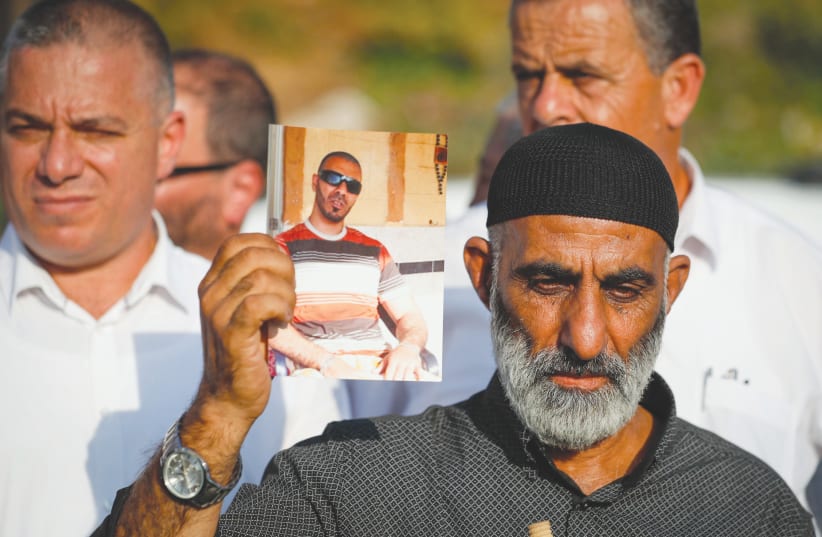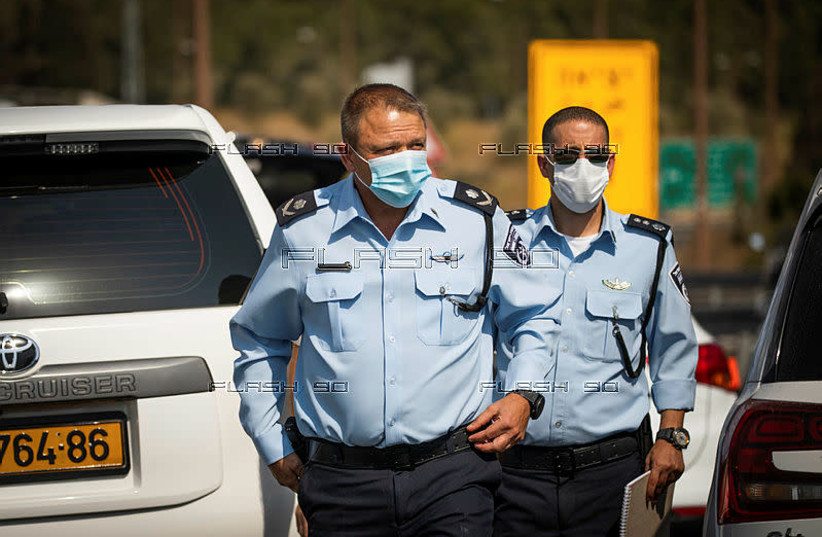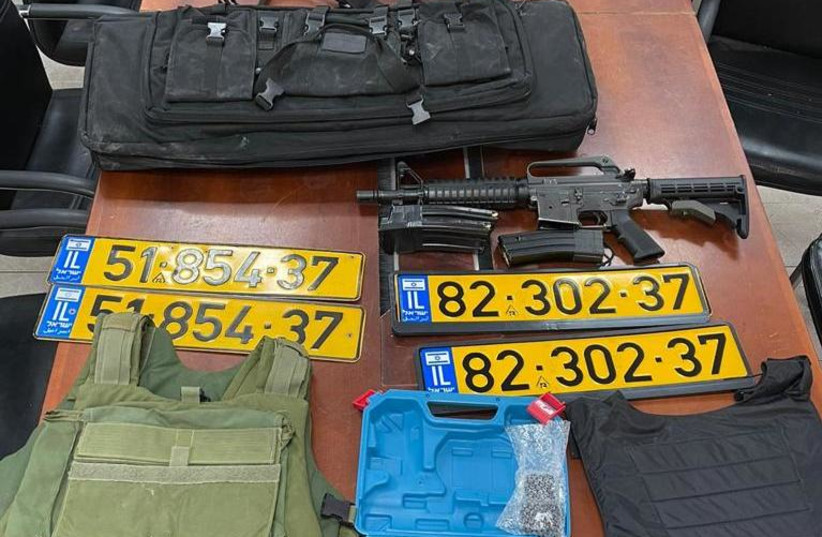The police are not doing enough to combat violent crime in the Arab sector, Arab-Israeli activists said Sunday following the killing of four people in separate incidents on Friday and Saturday.
Since the beginning of the year, 74 Arabs, including 10 women, have been murdered, according to the Arab Center for a Safe Society (Aman), which combats violence and crime in Arab society.
The National Committee of the Heads of Arab Local Authorities urged officials to step up their efforts to enforce law and order in Arab communities.
“Only a part of Israel can be considered to be under a state of law and order,” the committee said. “The other part is plagued with lawlessness.”
It called on Israel Police Insp.-Gen. Kobi Shabtai to clarify the measures police intend to take to curb the wave of rising violence.
“What is happening in the Arab sector is a true catastrophe,” Aman Center co-director Kamel Rayan said. “Everyone has become a target of the violence – women, children, youths and the elderly.”
Some activists said they expected the death toll to rise following the police’s failure to solve many of the murder cases and to confiscate weapons held illegally in the Arab community.
Other activists said they were not opposed to the idea of having the Shin Bet (Israel Security Agency), which is generally greatly disliked among Arabs, join the battle to fight violent crime in the Arab sector.
“It’s obvious that the police are incapable of dealing with this problem,” said Muhammad Haj Yahya, a businessman from Taiba. “I don’t care if the Shin Bet or even the Mossad take charge of the war on crime. We need to stop the bloodshed.”
Dr. Warda Sada, a prominent educator and political and social activist from the Galilee, said there were two reasons behind the rise in criminal activity in the Arab sector.
First, the police do not take complaints by Arabs about violence seriously, especially violence against women, and second, the police are not fighting against “corrupt elements” who support the criminals, she said.
“The police need to embark on a soul-searching process,” she added. “They need to ask themselves about the source of the illegal weapons that are in the hands of civilians. Some of the weapons are coming from the IDF.”
According to Sada, the authorities have neglected the issue of crime in the Arab sector since the 1980s.
“We have seen that the police take action only when the criminal activities spread to Jewish communities,” she said. “The police complain about the lack of cooperation from the Arabs. Why? Many Arabs have, over the years, lost confidence in the police. For many years, the attitude of the authorities was: Let the Arabs solve their problems on their own. This resulted in the increase of crime.
“The absence of law enforcement in the Arab sector over the past three decades led to the emergence of family gangs and crime organizations. By neglecting the Arab community, the authorities created the impression that they care only when the violence affects Jews.”
Sada and other activists said only 10% of the murder cases in the Arab sector have been solved over the past few years, leading many Arabs to believe that the authorities are not interested in devoting sufficient resources to combat the phenomenon.
“We cannot continue to bury our heads in the sand,” said Dr. Thabet Abu Rass, co-executive director of The Abraham Initiatives international board. “We have a serious problem, both within our community and with the state. The killing of the four Arab men in the past few hours is a sign of the upsurge in crime. It shows that we are going to witness a new record this year in the number of murder cases in the Arab sector.”
Most of the murder cases have not been solved, Abu Rass said, adding that the time has come for the police to invest more resources and efforts.
“The police must work harder to solve the murder cases,” he said. “They also need to work harder to collect illegal weapons.”
Abu Rass said he supported a massive crackdown on suspected criminals and the widespread phenomenon of illegal weapons.
“Police intelligence knows where the weapons are,” he told Army Radio. “There’s enough intelligence to deal with this issue.”
There were thousands of Arab “collaborators” with the police and Shin Bet who are involved in weapons trafficking in the Arab sector, Abu Rass said.
“These people are above the law,” he said. “They are the ones who are selling the weapons and involved in money laundering. A senior police officer was quoted as saying that these collaborators enjoy immunity because they work with the Shin Bet.”
On the other hand, Abu Rass said he was not absolving the Arab community’s leadership from its responsibility for the rise in violent crime.
“I believe that the Arab leadership needs to map all the clan disputes to find solutions,” he said. “Ninety-nine percent of the Arabs are not involved in criminal activities. The government did a good thing by allocating NIS 2.4 billion to combat crime. This is a good start, but we need to start working on dealing with the root causes of crime in Arab society, such as lack of housing and unemployment.”
Aman Center co-director Reda Jaber said the problem with the state institutions’ handling of anti-crime and -violence programs is that they do not want to “transform” the existing ones.
“All they want is to strengthen and reformulate the existing programs,” he said. “We don’t need enhancement or reform. Instead, we need a process of rebuilding. We cannot build on what has already failed. The corrupt structures in the various institutions, whether governmental or local, cannot be built upon.”
Jaber said he did not believe increasing the number of police stations in Arab communities would change the situation.
“What changes the work of the police is not an increase in its stations within our society, but a fundamental change in its mindset as an institution,” he said. “There is a gap between the development of crime and its perpetrators and between the police and its cadres. Criminals are developing [their methods], while the police are lagging behind in their performance and capabilities.
“The police could not, or did not, rid themselves of their relationships with criminals within our society. It is a network of relationships that clearly makes the work of the police fail. This requires a change and a revolution in the work of the police.”
According to the Aman Center, the Israeli authorities’ “negligence policy, along with some social structural changes that the Arab minority has undergone over the past years, had resulted in a high and an alarming rise in the criminality and violence rates within this minority.”
Since 2000, some 1,400 male and female victims of violence and criminality have been recorded in the Arab sector, the Aman Center said.
“In light of this situation, the Arab citizen has become helpless against this continuous deterioration in his own personal security and safety and that of his family,” it said. “The Arab population’s human and civil rights were seriously damaged due to the different governmental bodies’ failure to deal with this crisis. In addition, the Arab minority’s local leadership is unable to efficiently deal with the problem due to the lack of real aid.”


